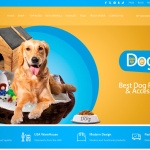Top Tips for Ecommerce Newbies: A Guide to Success
- October 15, 2024
- Ecommerce

Top Tips for Ecommerce Newbies: A Guide to Success. With the rise of online shopping, more and more people are turning to ecommerce as a way to start their own businesses. Whether you're looking to sell handmade products, dropship items, or offer services online, there are plenty of opportunities to make money in the world of ecommerce. However, starting an online store can be daunting for newcomers. From choosing the right platform to promoting your products, there are many factors to consider when diving into the world of ecommerce. To help you navigate this new territory, we've compiled a list of top tips for ecommerce newbies to set you on the path to success.
1. Choose the Right Platform
The first step in launching your ecommerce store is choosing the right platform. There are a variety of options available, from hosted platforms like Shopify and BigCommerce to open-source solutions like Magento and WooCommerce. Consider your budget, technical skills, and business goals when making your decision. Look for a platform that offers user-friendly templates, secure payment gateways, and SEO-friendly features to help you attract customers and make sales.
2. Focus on User Experience
Once you've selected a platform, it's time to focus on creating a user-friendly experience for your customers. Make sure your website is easy to navigate, mobile-responsive, and visually appealing. Include high-quality product images, detailed descriptions, and customer reviews to help shoppers make informed purchasing decisions. Test your site regularly to ensure it loads quickly and functions smoothly on all devices.
3. Develop a Marketing Strategy
No matter how great your products are, you won't make sales if customers can't find your store. Develop a marketing strategy that includes social media, email campaigns, search engine optimization, and paid advertising to reach your target audience. Consider partnering with influencers, hosting giveaways, and offering promotions to attract new customers and retain existing ones.
4. Build Trust with Customers
In the competitive world of ecommerce, trust is key to building a loyal customer base. Display trust badges, customer testimonials, and secure payment options on your website to reassure shoppers that their information is safe. Offer a hassle-free return policy, responsive customer service, and transparent pricing to build credibility and encourage repeat business.
5. Optimize for Search Engines
To drive organic traffic to your ecommerce store, it's essential to optimize your website for search engines. Use relevant keywords, meta descriptions, and alt tags on your product pages to improve visibility in search engine results. Create unique, high-quality content that answers customer questions and addresses their needs to attract valuable traffic to your site.

Top Tips for Ecommerce Newbies: A Guide to Success
6. Monitor Your Metrics
To track the success of your ecommerce store, monitor key metrics like traffic, conversion rate, and average order value. Use Google Analytics, social media insights, and ecommerce platform reports to analyze your performance and make data-driven decisions to improve sales. Experiment with different strategies, A/B test your website, and learn from your competitors to stay ahead in the ever-changing world of ecommerce.
7. Stay Up-to-Date with Trends
Ecommerce is a fast-paced industry, with new technologies, consumer behaviors, and market trends emerging every day. Stay up-to-date with industry news, attend webinars, and network with other ecommerce professionals to stay ahead of the curve. Experiment with emerging technologies like augmented reality, voice search, and chatbots to enhance the shopping experience for your customers and differentiate your brand from the competition.
8. Provide Excellent Customer Service
In ecommerce, customer service can make or break your business. Provide prompt, personalized support through email, live chat, and social media to address customer inquiries and resolve issues quickly. Offer self-service options like FAQs, tutorials, and video guides to empower customers to find answers on their own and reduce your support workload. Engage with customers on social media, respond to reviews, and show appreciation for their feedback to build relationships and foster brand loyalty.
9. Invest in Professional Photography
In ecommerce, high-quality product images are essential to attract customers and showcase your products in the best light. Invest in professional photography, 360-degree views, and lifestyle shots to capture your products from every angle and appeal to the visual preferences of your target audience. Use natural lighting, clean backgrounds, and consistent styling to create a cohesive brand image that resonates with customers and sets you apart from competitors.
10. Continuously Improve Your Store
Success in ecommerce doesn't happen overnight. Continuously improve your store by monitoring feedback, analyzing data, and experimenting with new strategies to optimize your performance. Listen to customer reviews, implement suggestions for improvement, and adapt to changing market conditions to stay competitive and relevant in the fast-paced world of ecommerce.
FAQs:
Q: How much does it cost to start an ecommerce store?
A: The cost of starting an ecommerce store can vary depending on your platform, hosting, design, and marketing needs. You can start a basic store for as little as $30 per month on platforms like Shopify, or invest more to create a custom, branded experience on platforms like Magento. Consider your budget, goals, and technical skills when choosing the right option for your business.
Q: How do I drive traffic to my ecommerce store?
A: To drive traffic to your ecommerce store, focus on marketing strategies like social media, SEO, email campaigns, and paid advertising. Create engaging content, run promotions, partner with influencers, and build a strong online presence to attract customers to your site. Monitor your metrics, analyze your performance, and adjust your strategy to maximize traffic and sales.
Q: How can I compete with big ecommerce players?
A: While competing with big ecommerce players can be challenging, there are strategies you can use to differentiate your brand and attract customers. Focus on niche markets, offer unique products, provide exceptional customer service. And leverage your brand story to connect with customers on a personal level. Use data analytics, customer feedback, and industry trends to identify opportunities for growth and stay competitive in the crowded ecommerce landscape.
In conclusion
Starting an ecommerce store can be a rewarding and profitable venture for newcomers. By following these top tips for ecommerce newbies, you can set yourself up for success and navigate the complexities of the online marketplace with confidence. From choosing the right platform to optimizing for search engines and providing excellent customer service, there are many factors to consider when building a successful ecommerce business. Stay up-to-date with trends, monitor your metrics. And continuously improve your store to stay ahead in the competitive world of ecommerce. By following these tips and staying committed to your goals. You can achieve success and build a thriving online business that resonates with customers and drives sales.
Creating a Seamless User Experience on Your Ecommerce Website












